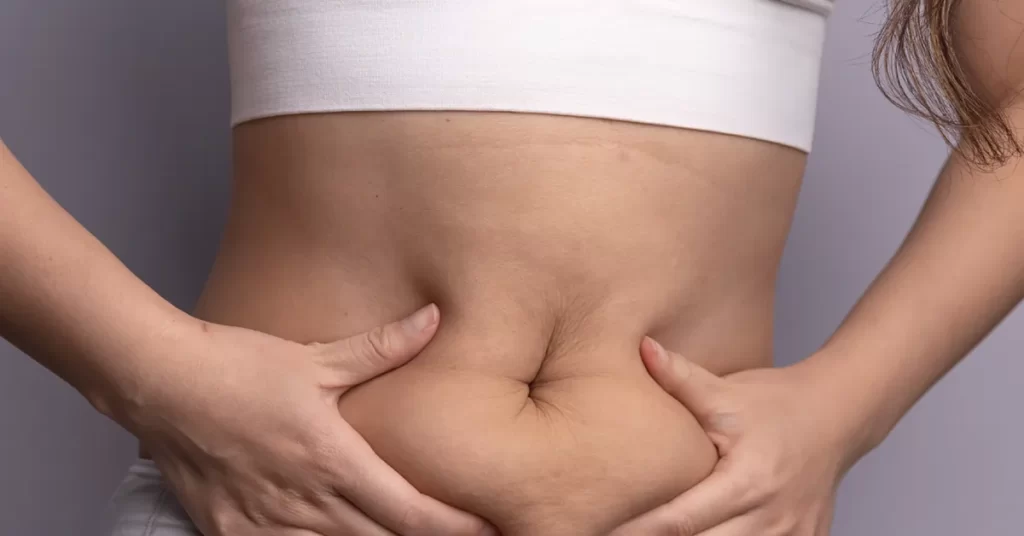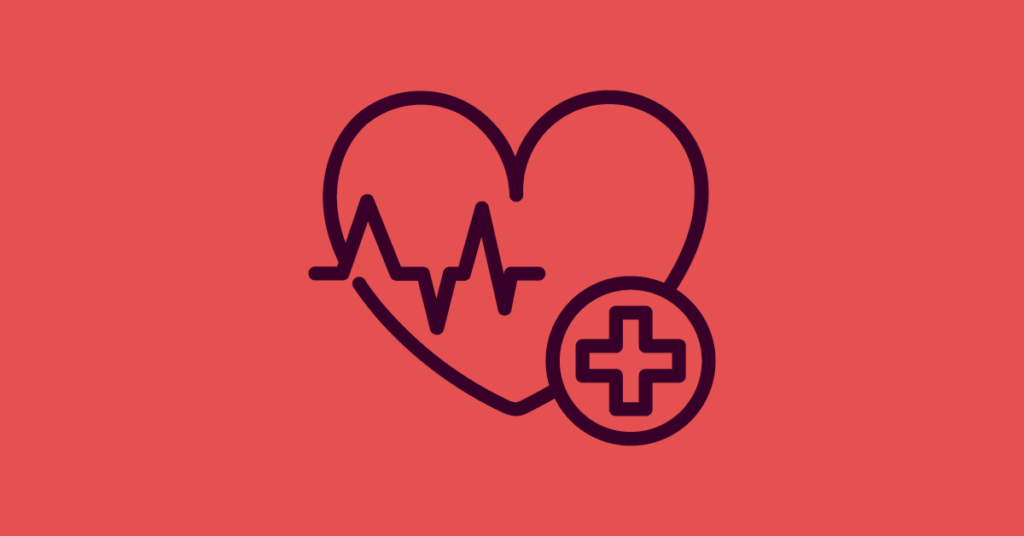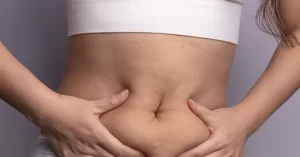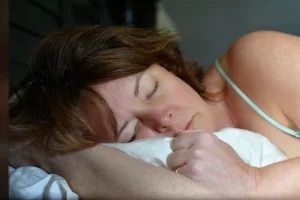Snapshot
Reduced estrogen = increased bone loss.
Bone health is crucial throughout life, but especially during our menopause transition when bone loss can accelerte, increasing the risk of osteoprosis. Build your “bone bank” before 30, focusing on calcium, vitamin D, and exercise. During menopause, increase these efforts as estrogen decline accelerates bone loss. Post-menopause, maintain bone density through continued nutrition, exercise, and medical monitoring. It’s never too early or too late to prioritize your skeletal strength.
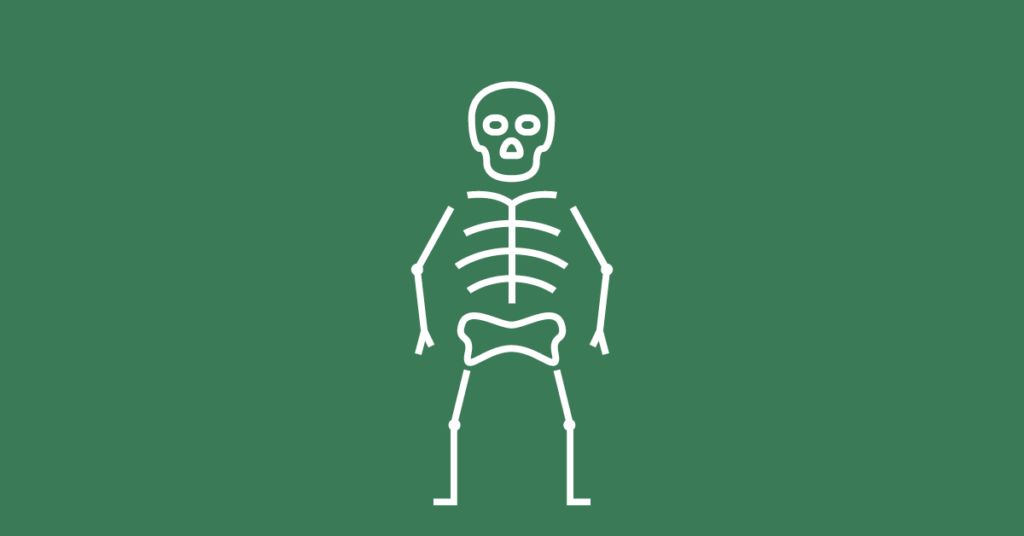
The stages of menopause
Pre-menopause (up to age 30): Focus on building your “bone bank” through diet, exercise, and healthy lifestyle choices.
Perimenopause: Increase calcium and vitamin D intake, maintain regular exercise, and consider bone density screenings.
Menopause: Intensify efforts to maintain bone density as estrogen levels decline rapidly.
Post-menopause: Continue with bone-supporting habits and discuss potential treatments with your healthcare provider if needed.
Why does bone health decline during menopause?
Our bones are like a bank account where we deposit and withdraw bone tissue. Up until about age 30, we’re mainly making deposits, building bone density through diet, exercise, and lifestyle choices. This is a key stage of life to invest in your bone health bank!
Among many of its roles in our bodies, estrogen plays a vital role in maintaining bone density and supports bone health by:
- Slowing down bone resorption (breakdown)
- Promoting calcium absorption in the intestines
- Reducing calcium loss through urine
As estrogen levels decline from perimenopause onwards, bones lose calcium and other minerals at a much faster rate, accelerating bone density loss, significantly increasing the risk of osteoporosis and fractures.
What science tells us
Rate of bone loss: During the menopausal transition and post-menopause stages, women can experience significant bone loss. Research indicates that up to 20% of bone mass can be lost during this period, making one in two postmenopausal women prone to osteoporosis. Studies indicate that women can lose up to 10% of their bone mass during the first five years after menopause.
Fracture risk: Post-menopausal women are particularly susceptible to osteoporosis-related fractures. Estimates suggest that half of all women over the age of 50 will experience an osteoporosis-related fracture in their lifetime.
Exercise benefits: Regular physical activity plays a crucial role in maintaining bone health:
- Regular weight-bearing and resistance exercises have demonstrated to significantly reduce bone loss and fracture risk in postmenopausal women.
- Long-term research published in JAMA Internal Medicine found that women who walked at least 4 hours per week had a 41% lower risk of hip fractures compared to those who walked less than 1 hour per week.
- Tai Chi practice can significantly improve balance and reduce fall risk in older adults, which is crucial for preventing fractures.
Vitamin D importance: Adequate vitamin D levels are essential for maintaining bone health. Research highlights that sufficient vitamin D intake is crucial for maintaining bone density and reducing fracture risk in menopausal women.
Protein: Increasing dietary protein can help preserve bone mass in postmenopausal women. Research from the American Journal of Clinical Nutrition suggests aiming for about 1.0-1.2 grams of protein per kilogram of body weight daily.
What can we do to support bone health before and during the menopause journey?
Understanding the importance of optimizing bone health and taking proactive measures at different stages of life can significantly influence our overall well-being and quality of life.
The years leading up to menopause are critical for bone health. During this time, women can maximize bone density through diet, exercise, and healthy lifestyle choices. A diet rich in calcium and vitamin D is important for bone growth. Engaging in regular weight-bearing and muscle-strengthening exercises can also enhance bone density.
Proactive steps for stronger bones
-
- Nutrition: Calcium and vitamin D are the cornerstones of strong bones. Dairy products, leafy greens, and fortified foods are calcium-rich, while vitamin D can be absorbed through sunlight exposure and foods like fatty fish and egg yolks.
- Regular exercise: Weight-bearing and resistance exercises (like walking, running, yoga, dancing, and strength training) are fantastic for building muscle and bone strength.
- Healthy lifestyle choices: Smoking and excessive alcohol consumption can negatively affect bone health. Keeping these in check is crucial. Additionally, maintaining a healthy body weight can help reduce stress on your bones.
- Bone density screenings: Commence screenings at menopause or earlier if risk factors are present. This can help catch any decline in bone health early. Discuss with your doctor the possibility of treatments or medications that can help protect your bones during menopause.
- Consider Hormone Replacement Therapy (HRT): For those at high risk or already dealing with osteoporosis, various treatments, including medication and hormone therapy, can slow bone loss. Decisions around such treatments should be made in consultation with healthcare providers, considering your individual health status, risk factors, and personal preferences.
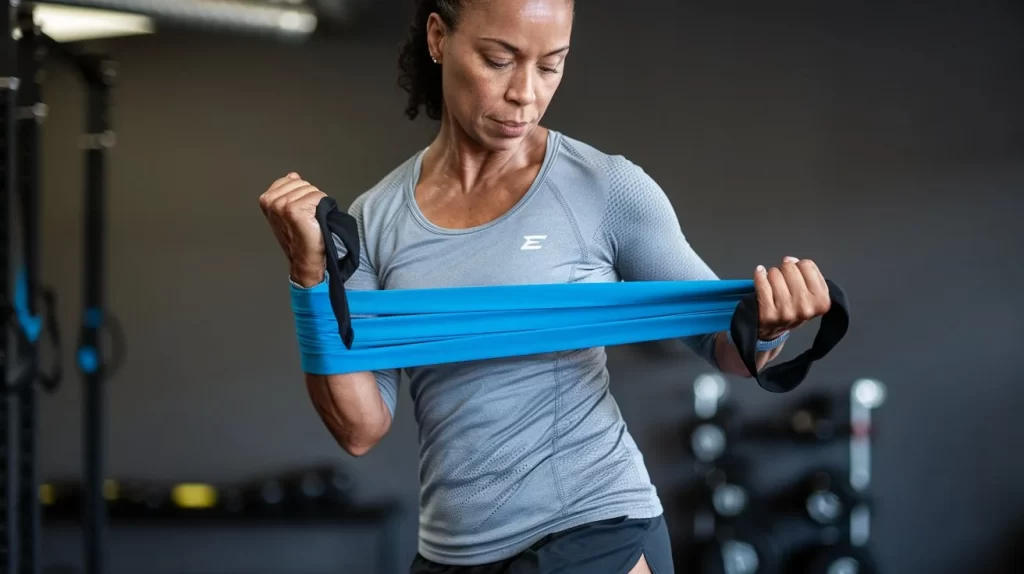
Sustaining strength post-menopause
Maintaining and improving bone health during and after menopause requires a multifaceted approach. This includes continuing to consume a diet rich in calcium and vitamin D, engaging in regular physical activity, and avoiding smoking and excessive alcohol consumption. It’s also important for women to discuss bone density screening (DEXA scans) with their healthcare providers to assess their risk and monitor their bone health over time.
- Stay active: Continuing with regular exercise not only supports bone health but also muscle strength, balance, and overall wellbeing.
- Nutrition: Keep calcium and vitamin D intake up. As absorption can decrease with age, your body’s needs for these nutrients may increase.
- Lifestyle: Maintain a healthy lifestyle that supports bone health. Avoid smoking, limit alcohol consumption, and stay active to keep your bones strong.
- Monitoring: Continue with regular medical check-ups and bone density tests (it can help to put a reminder to stay on track with these). Monitoring your bone health is important to staying ahead of any potential issues.
A lifelong commitment
Bone health is something that women need to be conscious of throughout their lives. By taking proactive steps at every stage, we can significantly impact our bone density and strength, reducing the risk of osteoporosis and fractures in later years. It’s never too early or too late to start focusing on your bones. Whether you’re in your roaring twenties, navigating the waves of menopause, or embracing the wisdom of post-menopause, your bones deserve your attention and care.
If you experience unexplained fractures, significant height loss, or back pain, consult your healthcare provider promptly. These could be signs of osteoporosis.
Toolkit for menopausal bone health
Taking proactive measures at different stages of life can significantly influence our overall well-being and quality of life.
Natural supplements
Natural supplements that may support bone health include calcium, vitamin D, magnesium, vitamin K2, and isoflavones (it is always best to consult with a healthcare provider to understand what is best for you personally). Ensure adequate protein intake to support bone structure.
Calcium
Aim for 1,200 mg of calcium daily from foods or supplements.
Vitamin D
For optimal calcium absorption, 600-800 IU daily is recommended as adequate vitamin D intake
Vitamin K2
A study in Osteoporosis International found that Vitamin K2 supplementation can increase bone strength and reduce the risk of fractures in postmenopausal women.
Keeping active with at home balance and strength training
Weight-bearing and resistance exercises (like walking, running, yoga, and strength training) are fantastic for building strong bones and maintaining good posture which helps to reduce the overall stress on your bones.
Resistance bands
Resistance bands or light weights for at-home strength training
Light weights
Yoga mat
Try balance-enhancing activities like yoga or tai chi to prevent falls.
Stay hydrated
The general recommendation for water intake varies based on factors like age, weight, activity level, and climate. However, a common guideline for women is bout 2.7 liters (91 ounces) of total water per day, including all beverages and food sources.
Accessible hydration
Keep a reusable water bottle with you throughout the day. Having water within reach makes it easier to sip consistently.


